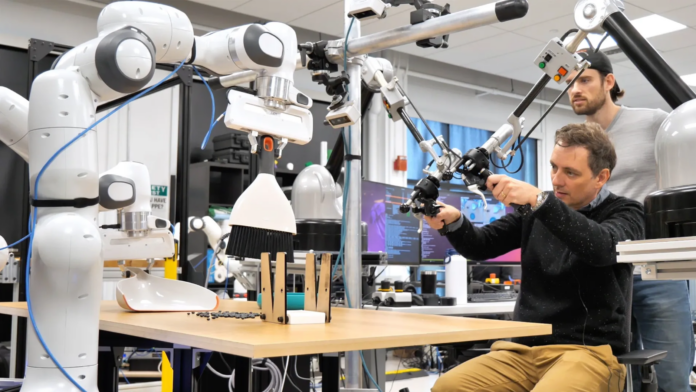Toyota, a brand often associated with pioneering automotive technology, is now venturing into an exciting new domain: the world of robotics and artificial intelligence (AI). Their latest project focuses on teaching robots to perform household chores, representing a significant advancement in the integration of machine learning with practical robotics. This innovative initiative could revolutionize our daily interactions with technology.
At the core of Toyota’s robotic innovation lies a sophisticated machine-learning system known as a diffusion policy. This technology, reminiscent of those used in AI image generators, enables robots to quickly decide the best action based on numerous possibilities and diverse data sources. Developed in collaboration with experts, including Shuran Song, a noted figure in robotics from Stanford, this system marks a critical development in AI capabilities.
The vision Toyota is pursuing goes beyond basic programming. They are integrating this machine learning approach with language models similar to those behind ChatGPT. The goal is to empower robots to learn tasks by watching videos, potentially utilizing platforms like YouTube as rich resources for robotic training. This approach could significantly enhance the learning capacity of robots, allowing them to acquire skills through observation.
The practical implications of Toyota’s work in home robotics are immense. As robots become more skilled in household tasks, we could see a new era in home automation. These AI-driven robots could become intuitive, efficient, and adaptable assistants in our homes, simplifying daily routines and offering essential support.
Toyota’s project is more than an exploration of AI and robotics; it’s a look into the future of everyday technology. These advancements could provide critical assistance to the elderly or individuals with disabilities, enhancing their independence and quality of life. Furthermore, the development in AI and machine learning could have far-reaching effects, influencing various facets of technology and automation.
As Toyota continues to innovate in robotics and AI, the potential for groundbreaking developments is vast. The combination of advanced machine learning and language models suggests a future where robots are not just tools but intelligent, adaptable partners in our everyday lives.
In conclusion, Toyota’s venture into using AI to teach robots household chores is a shining example of how rapidly technology is advancing and becoming an integral part of our daily existence. As these developments progress, we are on the cusp of a new age in home automation and AI, where robots transcend their traditional roles to become intelligent, adaptive parts of our homes. Toyota’s pioneering efforts are shaping a future where technology seamlessly blends into our lives, enhancing them in ways previously unimaginable.












